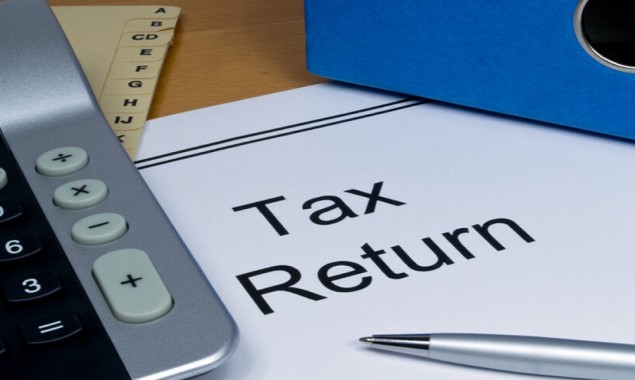
Govt strives for better, easy taxation system: PM Imran Khan. Image: File
The increase in tax revenues has proved to be a daunting task for the Pakistan government, as stagnated tax-to-GDP ratio is widely linked with a host of factors such as high fiscal deficit and high inflation rate, which resulted in weak tax revenue efforts. The Pakistan government raised revenues in such a manner that it favoured certain sectors and their economic activities.
Of the 220 million population in Pakistan, only over three million, or 1.36 per cent, are filing income tax returns. There is a general perception that declaring income or assets in Pakistan is unworthy. Plundering of funds by the public office holders is a major irritant in persuading the taxpayers to declare their assets and income.
Another general perception is that the tax amount collected is not utilised in an appropriate manner so there is no need to pay taxes and declare income.
Another thing, which is worrisome is the trust deficit between the taxpayers and its managers. Recently, those taxpayers who filed their income tax returns for the first time received notices from the Inland Revenue offices, asking them to file their returns of the last five years, otherwise they would be penalised under the provisions of the tax laws.
Usually, in Pakistan the people prefer to pay double tax on the same income in the shape of withholding tax but avoid to submit their declarations. The population of return filers was only 0.8 million about three years ago. A large number of withholding provisions compelled the people to file their income tax returns.
Through the Finance Act, 2019, an amendment was introduced to make it mandatory for the persons to appear on the Active Taxpayers List (ATL) for availing the reduced rate of withholding tax. This helped the revenue body to substantially increase the returns filing.
The tax authorities also notified that only those taxpayers will be included in the ATL, who file their income tax returns by the due date or after due date with the payment of surcharge. The substantial rise in returns filing shows that the people were filing tax returns only to avail the reduced rate of withholding tax.
With the last date to file income tax and wealth statements fast approaching the taxpayers are finding it difficult to file their returns due to the little time given by the government, besides weak enforcement, fragmented revenue administrations, low compliance by the taxpayers, generous and distortionary exemptions and concessions to various sectors of the economy and narrow tax base.
The income tax returns filing has been made mandatory for all those persons deriving above the threshold income, as prescribed under the tax laws, to comply with the requirement, otherwise, subject to penal provisions, resulting in imposition of fine and or prosecution.
This year, the tax authorities in Pakistan have notified September 30, 2021 as the deadline to file tax returns and wealth statements for the tax year 2021.
In the past, the Federal Board of Revenue (FBR), the apex tax body of Pakistan, has a mandate to collect revenue and enforce provisions of tax laws, finalised forms for income tax returns and wealth statements. The delay in the issuance of forms caused several extensions in the last date for compliance by the taxpayers. However, last year the revenue board finalised the forms by September 8, 2020, which was difficult for the taxpayers to comply with the mandatory requirements.
Tax bars have raised the issue with the FBR that the statutory timeline for filing tax returns was three months from the issuance of the finalised return forms. The then Member Inland Revenue (Operations) Dr Muhammad Ashfaq, the present chairman of the FBR, was never in favour to extend the date but allowed three-month extension up to December 8, 2020. However, he made it clear that the forms would be available within time and no date extension would be granted in the following years.
As promised, the FBR issued the finalised return forms for the tax year 2021 on July 1, 2021 giving three months to the taxpayers as per the law.
All the taxpayers are required to file their income tax returns by September 30 except for those companies having an accounting year from July 1 to June 30. The last date to file returns for such companies is December 31, 2021.
The taxpayers, including salaried persons, business individuals, association of persons, persons falling in the final tax year and corporate entities having an accounting year other than July to June are required to file their income tax returns and wealth statements by September 30, 2021.
Hindrances in filing an income tax return
The tax authorities have made filing of tax returns and wealth statements very easy, and in this regard, the FBR has launched Tax Asaan Application for salaried persons to file their returns in a few steps. The entire return filing system has been made computerised, which facilitated the taxpayers to file through their personal computers or mobile phones. However, there are many other things, which are neither in the taxpayers control nor in the FBR. These are withholding statements, which are to be provided by the withholding agents, who collect/deduct income tax under various provisions of the Income Tax Ordinance, 2001. These deducted taxes are adjustable or refundable. But one should submit these statements along with the returns to avail adjustment or refund.
The FBR collects withholding tax through withholding agents under various provisions of the Income Tax Ordinance, 2001. Some tax collected are the final liability of the taxpayers.
However, the majority of the provisions allow adjustment and refunds. The taxpayers are required to provide statements of withholding tax, a few of those are salary, sale and purchase of immovable properties; purchase, registration and transfer of motor vehicles; banking transactions; school fees; usage of phone and internet services; consumption of electricity and gas, etc.
The taxpayers are still unable to get these withholding statements to file their annual returns. In the past, the withholding agents such as banks and phone companies were sending the statements to their customers. But now this practice has been stopped and people are required to get such documents on their own.
Many salaried people have complained that their employers have not provided the statement. The corporate entities and big taxpayers have their representatives to do all this exercise, which resulted in adjustment and refund to these taxpayers.
Who is required to file an income tax return?
Every company; every person (other than a company) whose taxable income for the year exceeds the maximum amount that is not chargeable to tax under this ordinance for the year; or any non-profit organisation; any welfare institution; every person whose income for the year is subject to final taxation; any person not covered above and who has been charged to tax in respect of any of the two preceding tax years; claims a loss carried forward under this ordinance for a tax year; owns immovable property with a land area of 500 square yards or more or owns any flat located in areas falling within the municipal limits existing immediately before the commencement of the local government laws in the provinces; or areas in a Cantonment; or the Islamabad Capital Territory; owns immoveable property with a land area of 500 square yards or more located in a rating area; owns a flat having covered area of 2,000 square-feet or more located in a rating area; owns a motor vehicle having engine capacity above 1,000CC; has obtained national tax number; or is the holder of commercial or industrial connection of electricity where the amount of annual bill exceeds Rs500,000; is a resident person registered with any chamber of commerce and industry or any trade or business association or any market committee or any professional body, including Pakistan Engineering Council, Pakistan Medical and Dental Council, Pakistan Bar Council or any Provincial Bar Council, Institute of Chartered Accountants of Pakistan or Institute of Cost and Management Accountants of Pakistan; and a person who is a resident being an individual required to file foreign income and assets statements.
Further, every individual whose income under the head of “Income from business” exceeds Rs300,000 but does not exceed Rs400,000 in a tax year is also required to furnish income tax returns from the tax year.
Persons who are not required to file an income tax return for the tax year 2021 included a widow; an orphan below the age of 25 years; a disabled person; or in the case of ownership of immovable property, a non-resident person.
Read More News On
Catch all the Business News, Breaking News Event and Latest News Updates on The BOL News
Download The BOL News App to get the Daily News Update & Follow us on Google News.




